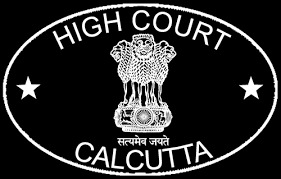1. - THESE are two appeals directed against the same order. One appeal is filed by the complainant and the other by the Opposite Party. Since both the appeals are connected, they were heard together and a common order is passed.
2. THE case of the complainant, is as follows : On 10.7.93 the Complainant went to the shop of the Opposite Party accompanied by his wife and entrusted two silk sarees to him for dry cleaning. THE Opposite Party before accepting the said sarees checked them thoroughly to make sure that there were no defects and accepted to dry clean the said two sarees, since they were found to be in good condition. He issued a bill for Rs. 50/-. Two days after the due date the complainant got back his two sarees on payment of Rs. 50/-. When he reached home his wife checked the sarees and found to her dismay a number of holes in the sarees, which have been caused due to the mishandling by the Opposite Party while cleaning the sarees. the Complainant contacted the Opposite Party and showed him the holes. THE Opposite Party contended that the holes existed even when the sarees were entrusted to him. THE Complainant sustained loss due to the negligence of the Opposite Party and the sarees worth Rs. 4,000/- had been rendered useless. He suffered mental agony.
On the basis of the above allegations, he prayed the District Forum to order replacement of the damaged sarees and to pay 3,000/- as compensation.
In his counter the Opposite Party made the following statements: - The holes were present even at the time of the entrustment. He reported about them to the complainant. He cleaned the sarees in water with surf powder to remove the dirt and he dried them later, he used an iron box to iron the same. The sarees were 10 years old and the holes were due to use and age. He carried on dry cleaning business with a small investment for more than 30 years and his income and profit margin are very low.
3. ON the basis of the above statements, he prayed for the dismissal of the complaint.
The rival parties got examined before the District Forum and after hearing them elaborately the District Forum held that after receiving Rs. 50/- for dry cleaning the Opposite Party did not adopt the method of dry cleaning for washing the two sarees entrusted to him by the complainant, that there was deficiency of service which resulted in-damage of the two sarees and have rendered them unfit for use. The District Forum, therefore, allowed partly the complaint and directed the Opposite Party to pay the complainant an amount of Rs. 250/-.
4. THE case of the complainant is that the amount of compensation given is inadequate.
The case of the Opposite Party is that there is no deficiency of service on his part. His contention is that the holes were present at the time when the sarees were entrusted to him and that therefore, he has not caused any damage. We are unable to agree. We have been shown the two sarees. The holes are so many in numbers, that no person engaged in the profession of cleaning the sarees will start cleaning the sarees found in that state, the normal course he would have adopted is to return the sarees as received. Further if such holes were existing at the time of entrustment, the complainant would not have been foolish enough to incur any expenditure to dry wash sarees. Therefore, the irresistible conclusion is that the holes were caused by the Opposite Party in the process of washing them.
The second contention of the Opposite Party is that though he has not resorted to the process of dry cleaning, he has followed the directions suggested by the leading saree dealers for washing silk sarees. This may be true, but he should have made it clear to the customer that he was not going to clean the saree through the process of dry cleaning, but through the process indicated by the saree dealers. When the complainant has given the sarees for dry cleaning and when the board of the shop of the Opposite Party mentions "Modern Dry Cleaners". He should not have used any other process without the consent of the complainant. We are, therefore, unable to accept the contention of the Opposite Party and we come to the conclusion that the finding of the District Forum that the sarees were damaged on account of the mishandling by the Opposite Party and that the Opposite Party is guilty of deficiency of service, is correct.
5. THE Complainant in the course of the appeal has added a new prayer (A. No. 1/94) for a direction -to the Opposite Party to discontinue the unfair trade practice of misleading the public that the Opposite Party was carrying on dry cleaning while admittedly he is not. This prayer was resisted by the Opposite Party on the ground that it should have been formulated before the District Forum itself.
6. AS per Section 2(1)(r) of the Consumer Protection Act, 1986, the fact a falsely representing that the services are of a particular standard, quality or grade amounts to unfair trade practice. In this case the Opposite Party through his name Board was making the public believe that he was doing dry cleaning work, while admittedly he was not. He was clearly indulging in unfair trade practice. The learned Counsel for the Opposite Party realising the legal .position accepted spontaneously to remove the word "Dry cleaning" from the name board and other papers issued by him. We record, that undertaking. In order to instill confidence in the mind of the public and to guard oneself against complaints of unfair trade practice, it is in the interest of any one who sells goods and provides services, that he describes his goods or services in the exact manner; any false representation would amount to unfair trade practice under the Act which will prove costly for him.
As far as the amount of compensation is concerned, the complainant''s demand was to replace the damaged sarees worth Rs. 4,000/- and Rs. 3,000/- for mental agony. But the Complainant would admit that the washed sarees were not new ones and that they have been washed twice and thrice. In view of the spontaneous offer of correcting the name board, we are inclined to think that an amount of Rs. 250/- for each saree would be adequate.
In the result, the appeal by the Opposite Party (A. No. 63/93) is dismissed and the appeal by the Complainant (A. No. 1/94) is allowed in part. The amount of compensation is raised from Rs. 250/- to Rs. 500/- payable within 30 days from today, failing which the said sum shall carry interest at 12% p.a. till the date of full payment Ordered accordingly.

